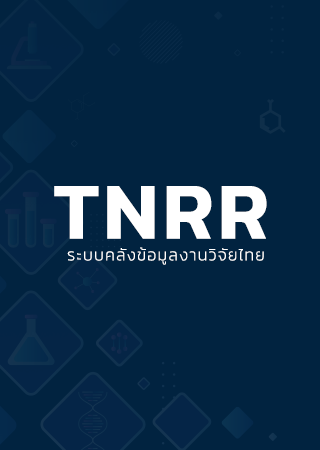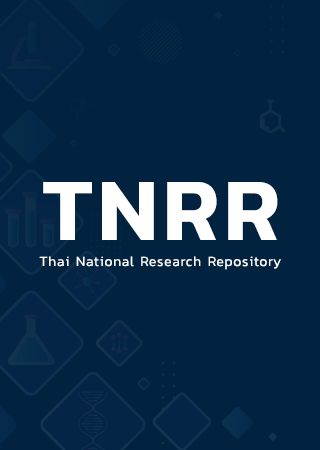Description
อินทผลัม (Phoenix dactylifera L.) เป็นพืชที่มีการเพาะปลูกในประเทศไทยมากขึ้น ผลอินทผลัมเป็นแหล่งของสารอาหาร และสารออกฤทธิ์ทางชีวภาพ จึงมีศักยภาพในการแปรรูปเป็นผลิตภัณฑ์อาหารเพื่อสุขภาพที่มีมูลค่าสูง ทั้งนี้ในปัจจุบันผลิตภัณฑ์อาหารจากอินทผลัมยังไม่แพร่หลายในประเทศไทย นอกจากนี้การศึกษาเกี่ยวกับชนิดและปริมาณสารสำคัญ รวมถึงประโยชน์เชิงสุขภาพ โดยเฉพาะที่เกี่ยวข้องกับการเกิดโรคไม่ติดต่อเรื้อรังของอินทผลัมสดยังมีอยู่อย่างจำกัด และยังไม่มีการศึกษาอินทผลัมที่ปลูกในประเทศไทย โครงการวิจัยนี้มีวัตถุประสงค์เพื่อพัฒนาผลิตภัณฑ์อาหารที่มีประโยชน์เชิงสุขภาพ จำนวน 4 ผลิตภัณฑ์ ได้แก่ เครื่องดื่มอินทผลัมสกัด ไซรัปอินทผลัม มาการีนจากเมล็ดอินทผลัม และเครื่องดื่มคล้ายชาจากเมล็ดอินทผลัมโดยใช้อินทผลัมสดที่มีคุณภาพไม่ตรงตามมาตรฐาน และเมล็ดอินทผลัมซึ่งเป็นผลิตภัณฑ์พลอยได้จากการแปรรูปอินทผลัมสด เป็นวัตถุดิบหลัก โดยทำการศึกษา ตั้งแต่การวิเคราะห์คุณค่าทางโภชนาการและสมบัติเชิงสุขภาพของอินทผลัมที่ปลูกในประเทศไทย เพื่อใช้เป็นข้อมูลในการพัฒนาผลิตภัณฑ์อาหารให้มีคุณภาพ คุณค่าทางโภชนาการ สารออกฤทธิ์ทางชีวภาพ และสมบัติเชิงสุขภาพในหลอดทดลอง ตลอดจนการทดลองในอาสาสมัครเพื่อหาค่าดัชนีน้ำตาลของผลิตภัณฑ์อาหารที่พัฒนาขึ้น 1 ผลิตภัณฑ์ การศึกษาคุณค่าทางโภชนาการ และสมบัติเชิงสุขภาพของเนื้อและเมล็ดอินทผลัมพันธุ์ Barhi ที่ระยะ Khalal ที่ปลูกด้วยวิธีการเพาะเลี้ยงเนื้อเยื่อ และวิธีการเพาะเมล็ด พบว่าเนื้ออินทผลัมที่ปลูกด้วยวิธีการเพาะเลี้ยงเนื้อเยื่อมี ปริมาณน้ำตาลทั้งหมด ฟรุกโทส กลูโคส และมอลโทสสูงกว่า แต่มีปริมาณโปรตีน ใยอาหาร วิตามินเอ วิตามินอี และ แคลเซียม ต่ำกว่าอินทผลัมที่ปลูกด้วยวิธีเพาะเมล็ด เมล็ดอินทผลัมมีสารอาหาร ปริมาณมากกว่าเนื้อ ได้แก่ พลังงาน โปรตีน ไขมัน ใยอาหาร โพแทสเซียม แมกนีเซียม เหล็ก และสังกะสี เนื้อและเมล็ดอินทผลัมยังมีสารออฤทธิ์ทางชีวภาพหลายชนิด มีฤทธิ์ต้านอนุมูลอิสระ และสมบัติเชิงสุขภาพจากการยับยั้งเอนไซม์ที่เกี่ยวข้องกับกลไกการเกิดโรคอ้วน โรคเบาหวาน โรคความดันโลหิตสูง และโรคอัลไซเมอร์ ผลิตภัณฑ์เครื่องดื่มอินทผลัมสกัด ผลิตได้โดย ผสมเนื้ออินทผลัมกับน้ำ ในอัตราส่วน 1:1 โดยน้ำหนัก และสกัดน้ำอินทผลัม โดยไม่ใช้เอนไซม์ หรือใช้เอนไซม์ Pectinex หรือ Viscozyme ปริมาณ 1% โดยน้ำหนักเนื้ออินทผลัม และสกัดที่อุณหภูมิ 45?C เป็นเวลา 3 ชั่วโมง โดยพบว่าเครื่องดื่มที่สกัดด้วยเอนไซม์มีสมบัติการต้านอนุมูลอิสระที่ดีกว่า มีปริมาณกลูโคส ฟรุกโทส สารออกฤทธิ์ทางชีวภาพ กลุ่มฟีนอลิก ฟลาโวนอยด์ และแคโรทีนอยด์ สูงกว่าเครื่องดื่มที่สกัดโดยไม่ใช้เอนไซม์ และมีฤทธิ์ยับยั้ง ?-amylase มากกว่าเครื่องดื่มที่สกัดโดยไม่ใช้เอนไซม์ ถึง 5 เท่า แต่มีปริมาณใยอาหาร และซูโครส ต่ำกว่า ผลิตภัณฑ์เครื่องดื่มอินทผลัมสกัด ชนิดพาสเจอร์ไรส์ได้รับการยอมรับทางประสาทสัมผัสจากผู้บริโภค และมีอายุการเก็บรักษาที่อุณหภูมิแช่เย็นประมาณ 4 สัปดาห์ โดยมีคุณภาพลดลงเล็กน้อยในระดับที่ยอมรับได้ และสมบัติการต้านอนุมูลอิสระไม่เปลี่ยนแปลง ผลิตภัณฑ์ไซรัปอินทผลัม ผลิตได้โดย ผสมเนื้ออินทผลัมกับน้ำ ในอัตราส่วน 1:2 โดยน้ำหนัก และสกัดน้ำอินทผลัม โดยไม่ใช้เอนไซม์ หรือใช้เอนไซม์ Pectinex หรือ Viscozyme ปริมาณ 50 U/ 100 g น้ำหนักเนื้ออินทผลัม และสกัดที่อุณหภูมิ 50?C เป็นเวลา 3 ชั่วโมง และทำให้เข้มข้นโดยการต้มเคี่ยว หรือระเหยภายใต้สุญญากาศ เพื่อให้มีปริมาณของแข็งที่ละลายได้ทั้งหมด ไม่ต่ำกว่า 70?Brix ผลการศึกษาพบว่า ไซรัปที่ผลิตโดยใช้เอนไซม์สกัดน้ำอินทผลัม มีสีอ่อนกว่า ความหนืดต่ำกว่า และมีปริมาณฟีนอลิกทั้งหมด และฤทธิ์ต้านอนุมูลอิสระสูงกว่าที่ผลิตโดยไม่ใช้เอนไซม์ การระเหยด้วยวิธีต้มเคี่ยว ทำให้ไซรัปมีสีคล้ำกว่า มีความหนืดสูงกว่าการระเหยภายใต้สุญญากาศ และมีฤทธิ์ต้านอนุมูลอิสระสูงกว่าด้วย ในขณะที่สมบัติเชิงสุขภาพของผลิตภัณฑ์ไซรัปอินทผลัมที่สกัดด้วยเอนไซม์ มี estimated in vitro index ต่ำกว่า และมีฤทธิ์ยับยั้ง ?-amylase สูงกว่าการสกัดโดยไม่ใช้เอนไซม์ ผลิตภัณฑ์ไซรัปอินทผลัมที่พัฒนาขึ้น มีคุณภาพ ความปลอดภัย ตลอดจนสมบัติเชิงสุขภาพ และเป็นที่ยอมรับของผู้บริโภค ผลิตภัณฑ์มาการีนจากน้ำมันเมล็ดอินทผลัม เตรียมโดยสกัดน้ำมันจากเมล็ดอินทผลัมด้วยเฮกเซนเป็นเวลา 2 ชั่วโมง และใช้เทคนิคการผสมน้ำมันเมล็ดอินทผลัม กับน้ำมันเมล็ดดอกทานตะวัน และปาล์มสเตียรีน ในอัตราส่วน 50:43:7 ปั่นผสมให้เป็นอิมัลชั่นโดยควบคุมอุณหภูมิขณะปั่นให้อยู่ในช่วง 0-1?C มาการีนที่พัฒนาขึ้นมีลักษณะคล้ายเนย มีไขมันประมาณ 80% สัดส่วนของกรดไขมัน เท่ากับ 1:1:1 ปราศจากไขมันทรานส์ และมีคุณลักษณะทางประสาทสัมผัสเป็นที่ยอมรับของผู้บริโภค แต่มีความแข็งน้อยกว่ามาการีนทั่วไปผลิตภัณฑ์เครื่องดื่มคล้ายชาจากเมล็ดอินทผลัม ผลิตโดยการอบเมล็ดอินทผลัม ซึ่งพบว่าการอบที่อุณหภูมิและเวลามากขึ้น ทำให้เมล็ดอินทผลัมและเครื่องดื่มคล้ายชาจากเมล็ดอินทผลัมที่ได้ มีสีเข้มขึ้น ปริมาณโปรตีน ไขมัน คาร์โบไฮเดรต และเถ้าเพิ่มขึ้นแต่ค่าความแข็ง ความชื้นและปริมาณฟีนอลิกทั้งหมด ฤทธิ์ต้านอนุมูลอิสระด้วยวิธี DPPH และ FRAP มีแนวโน้มลดลง โดยผลิตภัณฑ์เครื่องดื่มคล้ายชา ที่ผลิตจากเมล็ดอินทผลัม ที่ผ่านการอบที่อุณหภูมิ 200?C เป็นเวลา 10 นาที ได้รับการยอมรับทางประสาทสัมผัสมากที่สุด การศึกษาหาค่าดัชนีน้ำตาลของไซรัปอินทผลัม เปรียบเทียบกับอาหารมาตรฐานคือน้ำตาลกลูโคส โดยทำการศึกษาที่ available carbohydrate 50 g เท่ากัน ในผู้เข้าร่วมการวิจัยที่มีประวัติสุขภาพดี พบว่า ค่าดัชนีน้ำตาลของไซรัปอินทผลัม มีค่าเท่ากับ 55 ทั้งนี้ค่าดัชนีน้ำตาลของไซรัปอินทผลัม อยู่ในเกณฑ์ ค่าดัชนีน้ำตาลต่ำ ข้อมูลที่ได้จากโครงการวิจัยนี้ จะเป็นประโยชน์ในการส่งเสริมการปลูก และบริโภคอินทผลัมที่ปลูกในประเทศไทย การพัฒนาผลิตภัณฑ์อาหารเพื่อสุขภาพโดยใช้เนื้อและเมล็ดของอินทผลัมสดเป็นวัตถุดิบ การกล่าวอ้างทางสุขภาพ และคุณประโยชน์ของผลิตภัณฑ์ ซึ่งจะส่งผลให้เกิดการสร้างมูลค่าและการใช้ประโยชน์เชิงพาณิชย์ของอินทผลัมสดที่ปลูกในประเทศไทย และยังเป็นการสร้างมูลค่า และการแปรสภาพเพื่อเพิ่มคุณค่า ของผลอินทผลัมสดที่มีคุณภาพไม่ตรงตามมาตรฐาน และเมล็ดอินทผลัม อีกด้วย<br><br>Date palm (Phoenix dactylifera L.) has become an economical crop in Thailand. Date fruits contains substantial amount of nutrients and various bioactive compounds, thus are potential raw material of high-value functional food products. Date products have not yet been widely available in Thailand. Moreover, the information on bioactive compounds and in vitro bioactive properties related to non-communicable diseases of fresh dates is still limited, and there is no such report on date palm fruits grown in Thailand.This study aimed to develop four functional food products from date fruits, namely date juice, date syrup, margarine from date seed oil, and tea-like beverage from date seed, by utilizing sub-standard date fruits and date seeds, which are by-product of date processing. The study consisted of three main parts. Firstly, the nutritional composition and mecinal properties of date fruits grown in Thailand was investigated. Consequently, based on the information obtained from the first part, functional food products were formulated to achieve the expected quality, nutritional composition, bioactibe compounds and medicnal properties. Finally, one of the developed products was assessed for the glycemic index in healthy volunteers.Flesh and seed of cell culture originated and seed originated date palm fruits at Khalal maturation stage of Barhi cultivar were analyzed for their nutritive values and medicnal properties. The results indicated that flesh of cell culture originated date fruits contained higher total sugar, fructose, glucose and maltose, but lower viamin A, vitamin E and calcium than that of seed originated fruits. Seed of date palm fruits contained higher energy, fat, protein, total dietary fiber, potassium, iron and zinc than the flesh part. Date fruits also contained valuable bioactive compounds, which presented the potential antioxidant activities through DPPH, FRAP and ORAC assays, as well as the in vitro health properties against the activities of key enzymes involving in the occurrence/ prevention of obesity, diabetes, hypertension and Alzheimer’s disease.Date juice was extracted from date pulp (50% w/w date flesh) with or without the application of Pectinex or Viscozyme at 1% enzyme to substrate ratio. Enzyme-assisted extraction at 45?C for 3 hours exhibited greater antioxidant activities, contained higher glucose, fructose, bioactive compounds including phenolic acids, flavonoids, and carotenoids, and greater inhibition of ?-amylase than date juice extracted in the absence of enzyme. Date juice obtained from enzyme-assited extraction contained lower dietary fiber and sucrose. Pastuerized date juice products were accepted by the consumers and can be kept refrigereated for up to 4 weeks with slight changes in juice quality. However, the antioxidant activities of pasteurized date juice were well retained during refrigerated storage.Date syrup was produced from juice extracted from date pulp (33% w/w date flesh) with or without treating with Pectinex or Viscozyme (50 U/ 100 g date flesh) at 50?C for 3 hours. Then, evaporation of date juice was performed by open-heating or vacuum evaporation to obtain the final total soubles solids of at least 70?Brix. It was found that syrup prepared from enzyme-extracted date juice had ligher color, lower viscosity than syrup prepared without the aid of enzyme but had higher total phenolic content and greater antioxidant activities. Open-heat evaporation produced date syrup with darker color, higher viscosity and antioxidant activities than syrup obtained from vacuum evaporation. In vitro estimated glycemic index and ?-amylase inhibition were found to be higher for syrups obtained from enzyme-assisted extraction. The developed date syrup had quality, safety and bioactiviteis that meet legal requirements and were accepted by the consumer.Margarine from date seed oil was produced from the oil obtained from date seed by extraction using hexane for 2 hours. Oil blending technique was used in formulating the margarine to obtain suitable fatty acid profile. Date seed oil was mixed with sunflower seed oil and palm stearin at the ratio of 50:43:7 by homogenization at 0-1?C. The developed margarine was free from trans fat, contained 80% fat, and had the ratio of polyunsaturated fatty acids, monounstaured fatty acids, and saturated fatty acids closed to the healthy ratio of 1:1:1. The margarine was accepted by the consumer, although the hardness was lower than commercial margarine.Tea-like beverage from date seed was produced by roasting the date seed at suitable temperature and time. It was found that roasting at higher temperature and longer duration produced the seed and the respective beverage with darker color, higher contents of protein, fat, carbohydrates, and ash. Severe roasting consition decreased the hardness value and moisture content of date seed and lowered the total phenolic content and antioixidnt activities through DPPH and FRAP assays of the tea-like beverage. Tea-like beverage prepared from date seed being roased at 200?C for 10 minutes was the most accepted by comsumer.Date syrup was assessed for its glycemic index by using glucose as reference food. Solutions of date syrup or glucose containing 50 g of available carbohydrate were ingested by healthy volunteers who participated in the study. The results indicated that date syrup had glycemic index of 55, which is catagorzied as low glycemic index.The results of this study could be used for promoting the planting and comsumption of date palm fruits in Thailand. Moreover, it could provide valuable information for the development of functional food products from date palm fruits and seed, as well as for the formulation and filing of nutrition claims and health benefits of such products. These will, in turn, create high value addition and commercial utlilzation of date palm fruits grown in Thailand and the valorization of sub-standard date ftuis and underutilized date seeds.
Date of Publication :
02/2023
Publisher :
สำนักงานการวิจัยแห่งชาติ (วช.)
Category :
รายงานการวิจัย
Total page :
77012 pages
People Who Read This Also Read


